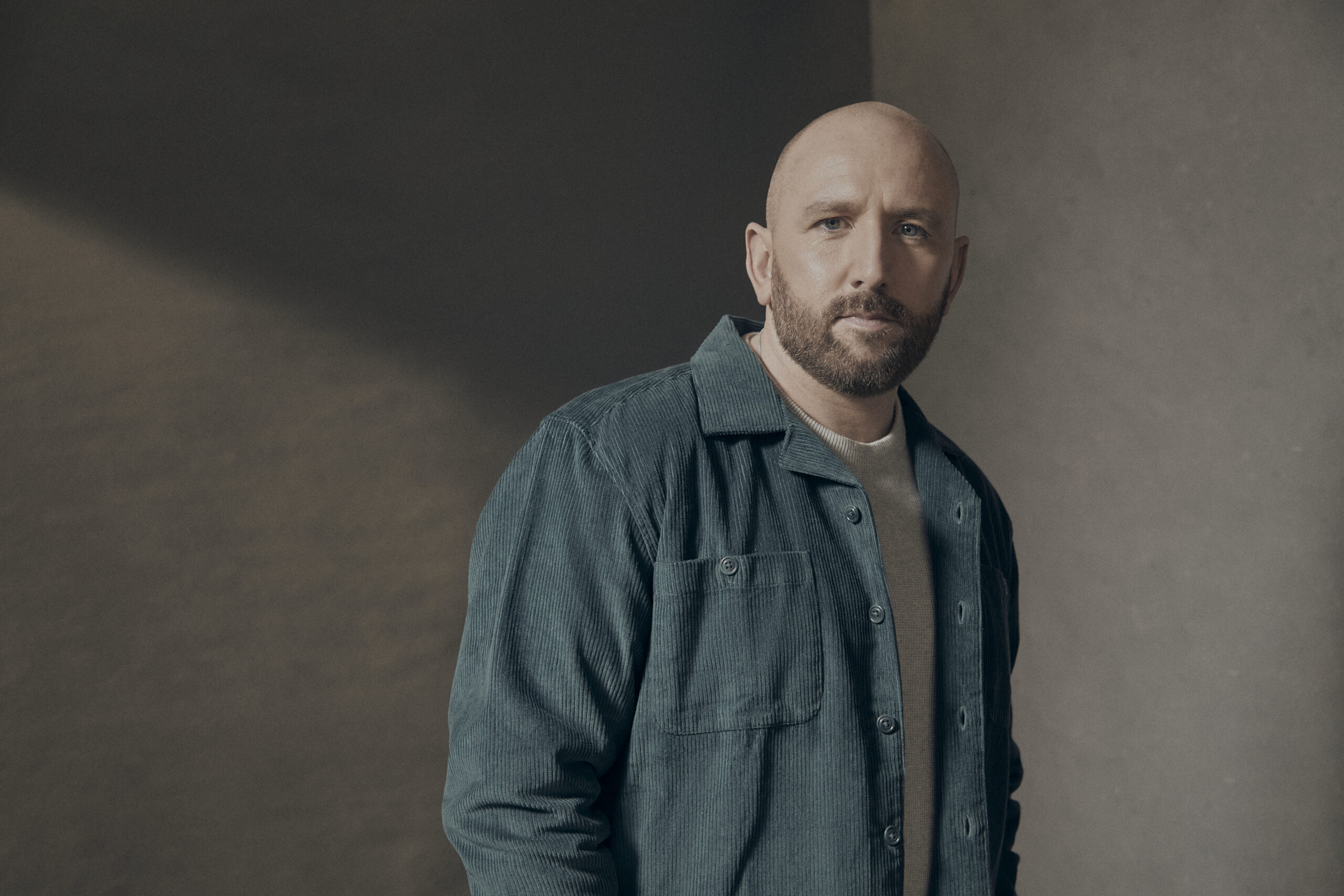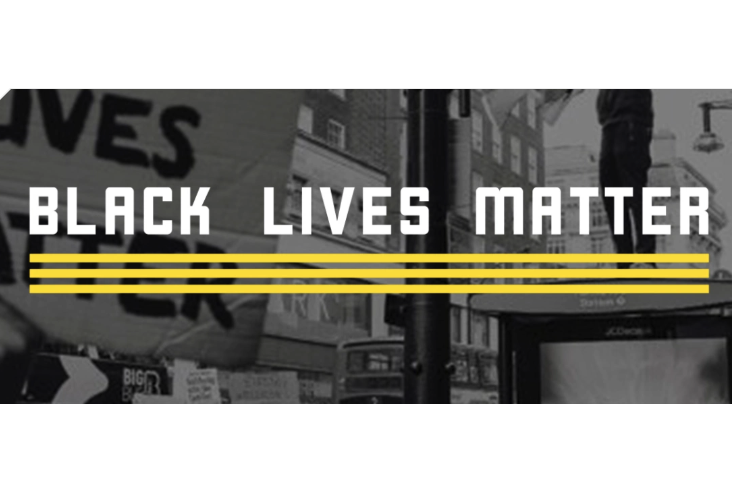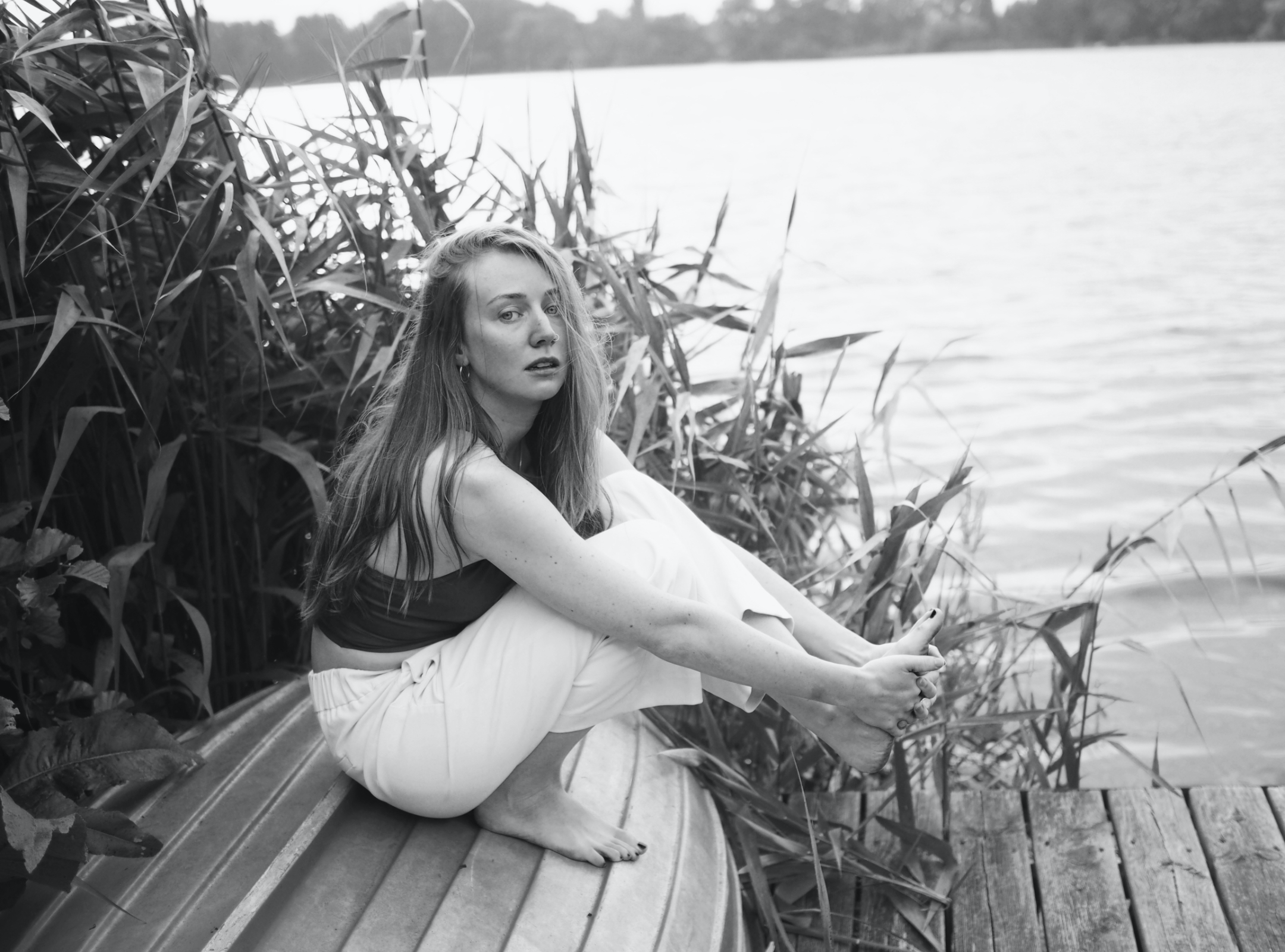Lights, camera… now what? Navigating the differences between stage and screen acting can be difficult, but we’ve got you covered. In our Acting for Camera module, we prepare our training actors by bringing in film and television industry professionals to guide them. Our Brighton campus students worked with Scottish actor David Carlyle, who, in addition to having a long and accomplished stage career, has appeared in television series such as The Bodyguard, Casualty, and upcoming show Dinosaur. David’s stand-out role was portraying bus conductor Gregory and his drag alter-ego Gloria in Russel T Davies’ It’s a Sin, for which he was nominated for Best Supporting Actor at the BAFTAs.
We caught up with third-year acting students Tom Stevens and Zoe Weaver to discuss their experiences of working with David throughout the Acting for Camera module. They shared their insights on how acting for camera differs from stage acting, the benefits of learning from an industry expert, and the importance of collaboration.
What are the most significant things you learned in the Acting for Camera module?
Tom Stevens: Despite performing for screen productions since my first year, I always felt like I knew the least about acting for camera, and this module made me so much more. Before , I had no idea how acting for camera worked in terms of what a filming day would be like, but David showed us everything: he even provided examples of what a call sheet looks like and gave us a feel for what each day would be like. I also have a much clearer understanding of how to film self-tapes and what casting directors would expect from them. I also always struggled with how ‘crossing the line’ worked (the rule where once you’ve established your line, you must then decide which side of the line you will place each subsequent camera setup). Now, having spent this module filming multiple scenes, I have a much clearer understanding.
Zoe Weaver: We covered the technical terminology used on set between the crew, which may seem alien to someone who is unfamiliar, and we looked at the step-by-step process of how a typical day would run. We also researched the jobs of other crew members, which made me appreciate the importance of each person on set. mentioned that being on set can often be confusing and busy, so he wanted to ensure that we were able to settle our nerves, understand the importance of each person’s individual job, and focus on our performance.
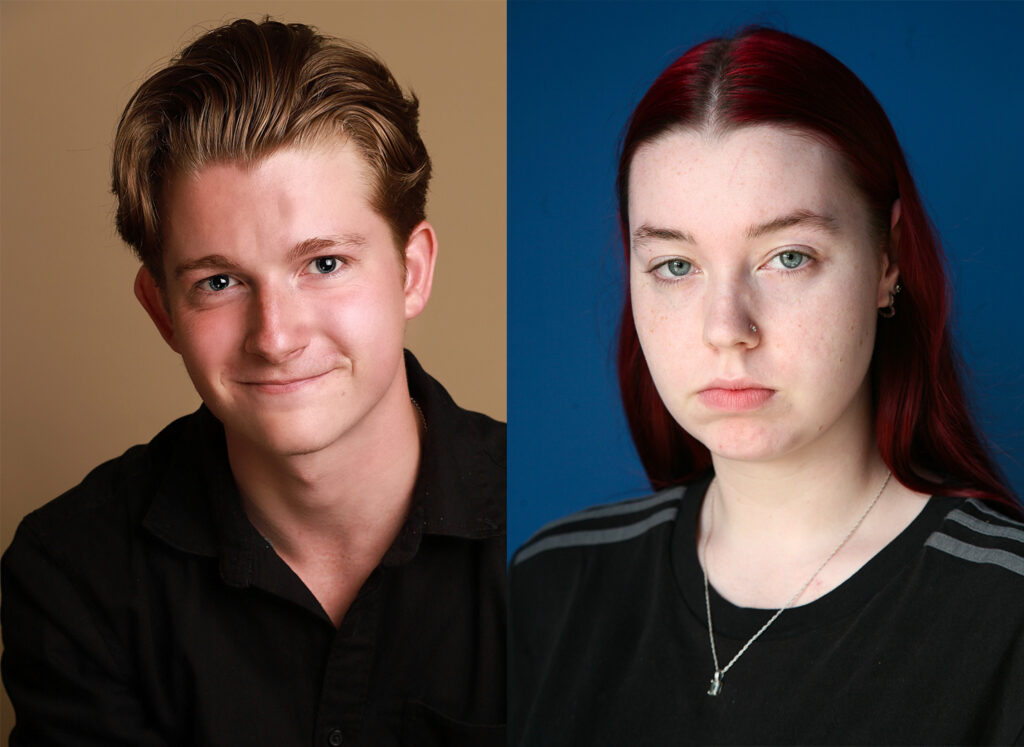
Tom Stevens and Zoe Weaver
How does acting for the camera differ from other kinds of acting?
Tom: Acting for the camera is considered much more grounded than other types of acting, but it’s by no means easier. You are not only worrying about the acting but also about whether you’re still in the frame or when it’s best to take a sip of a drink within a scene and if that is then covering your face, etc. However, there are also advantages that stage acting doesn’t have, such as being able to tell an entire story just through a change of eye line or not having to worry as much about projection because you are surrounded by microphones.
Zoe: Acting for the screen is similar to stage acting, but your movements and physical performance have to relate to the camera position and framing. After allowing us time to get used to being in front of the camera, David focused on helping us reduce our physical performances whilst keeping the scene alive – and most importantly keeping our characters’ thought process flowing.
What are the benefits of working with industry professionals like David?
Tom: Working with industry professionals is great because when we are getting information from someone who is currently working within the industry, we know that the information is recent, accurate, and relevant to current trends and processes.
Zoe: David was very honest about the industry we would be entering. He made it clear that it was not easy, giving us some first-hand experiences and anecdotes, but he also provided us with valuable advice. We discussed the importance of industry connections and doing your research, as well as more specific pointers, such as where to direct your questions to on set and how certain directors work with actors.
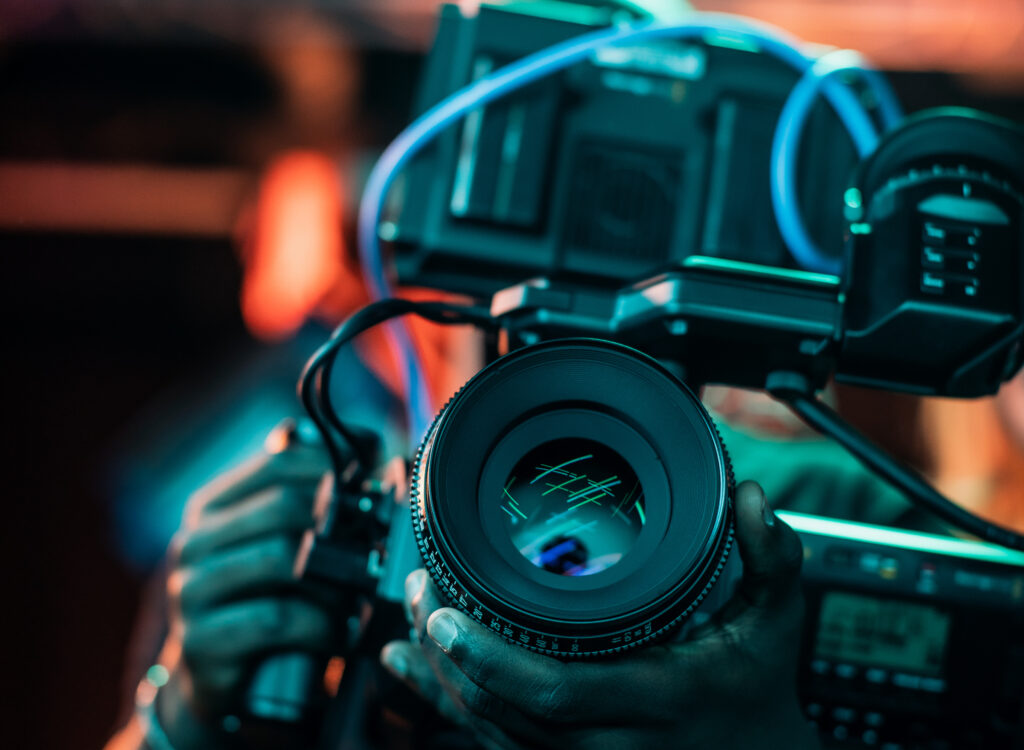
What are your highlights of working with David on this module?
Tom: One of my highlights of working with David is that he acts out what it is like to be on a film set. He demonstrates the behaviour of the director, the script supervisor coming up to you quietly to correct your lines, and even the lighting operator searching for ages to fix a glare on your face. As entertaining as this always was to watch, it was extremely helpful because it helped me truly picture the world of working on a real film set. We also did mock auditions where we would come into the room and David would pretend to be a casting director so we could practise what we would say when entering the room before starting the audition. David also really takes the time to focus on everyone individually. We were given multiple tasks, including filming our own auditions, and David would make sure he watched every single person’s and would give everyone the same level of helpful feedback. The way David works is really engaging and extremely helpful.
Zoe: Other than David being an overall lovely person and mentor, my highlight would be watching the self-tapes from my peers. David gave us sides from example castings, duologues and commercial scripts to take home and produce. Watching students come up with creative ways to tackle difficult sides whilst adhering to the technical side of producing a self-tape was sometimes hilarious, and other times emotional. Hearing his feedback on other students’ work was also really useful.
How important do you think collaboration is in your industry?
Tom: I believe collaboration is vital in the acting industry. It’s not just about your individual talent, but also how well you can work with directors, other actors, producers, and crew members to bring a project to life in the best possible way.
Zoe: Collaboration is absolutely key . Working with David and listening to his story has made this abundantly clear. We learnt a lot about the collaboration that takes place on a TV or film set and how important it is. However, this module has also highlighted the value of collaborating with other actors. During the tasks we were set, it was imperative that as a cohort we helped each other out, and that we provided constructive feedback.
A few words from David himself:
I was really thrilled to get a chance to work with the third-year actors on this module. When I was training, we had so little time to experiment with acting in the medium of camera, and I think it is great that this course offers students so much time to grapple with these skills. The students dived in headfirst, and you could see the difference in their confidence by the end of the module – and they seemed excited by the possibilities of acting for camera. Acting is acting, of course, but you have to suit the space; the camera opens up different ways to express your character, and the students really seemed to enjoy exploring that!
To discover more about Performers College, including auditions and how to apply, contact us at [email protected] or you can Apply Now, or book an Open Day on our Events page.
